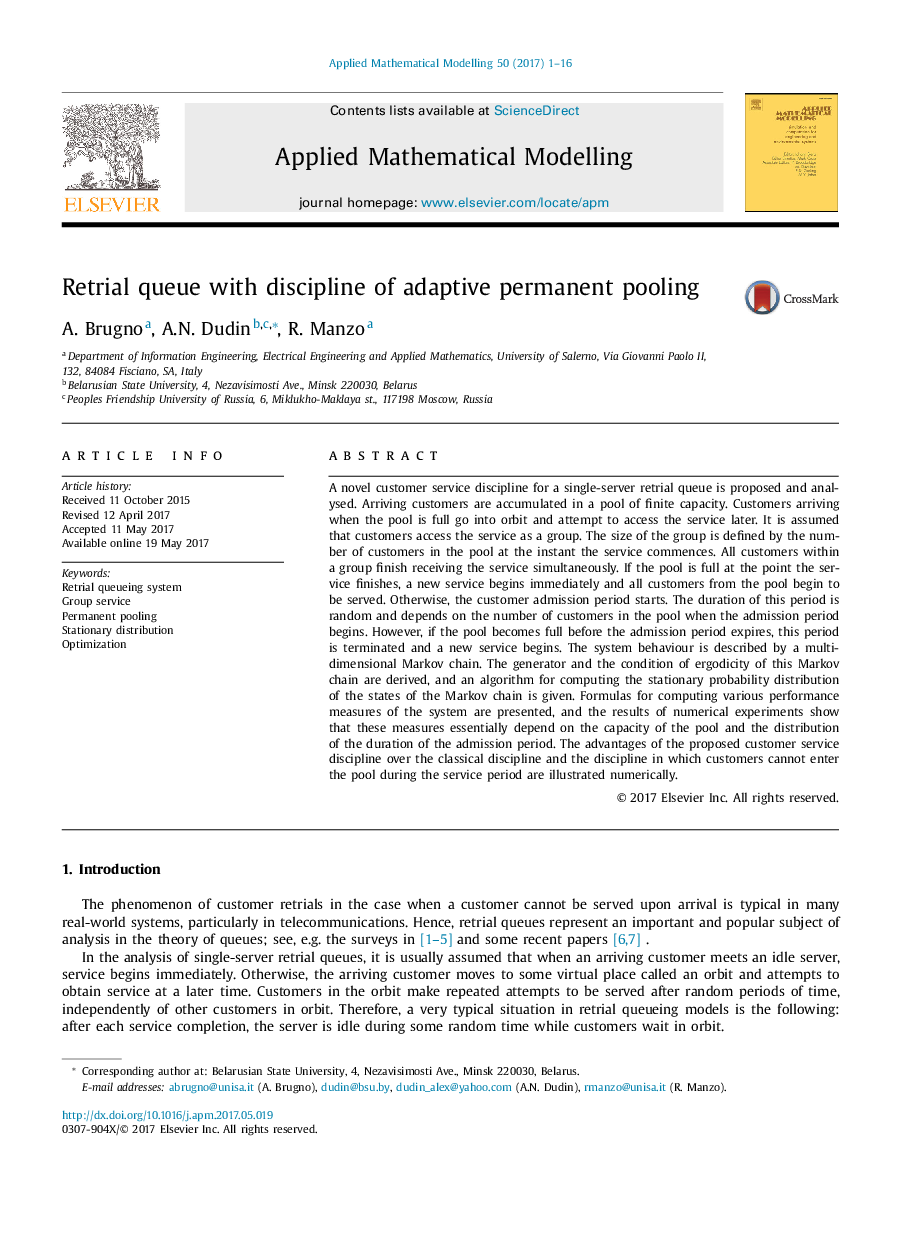ترجمه فارسی عنوان مقاله
صف مجدد با رشته ای از تلفیق دائمی سازگار
عنوان انگلیسی
Retrial queue with discipline of adaptive permanent pooling
| کد مقاله | سال انتشار | تعداد صفحات مقاله انگلیسی |
|---|---|---|
| 88202 | 2017 | 16 صفحه PDF |
منبع

Publisher : Elsevier - Science Direct (الزویر - ساینس دایرکت)
Journal : Applied Mathematical Modelling, Volume 50, October 2017, Pages 1-16
ترجمه کلمات کلیدی
سیستم امدادرسانی مجدد، سرویس گروهی، ترکیب دائمی، توزیع ثابت، بهینه سازی،
کلمات کلیدی انگلیسی
Retrial queueing system; Group service; Permanent pooling; Stationary distribution; Optimization;

